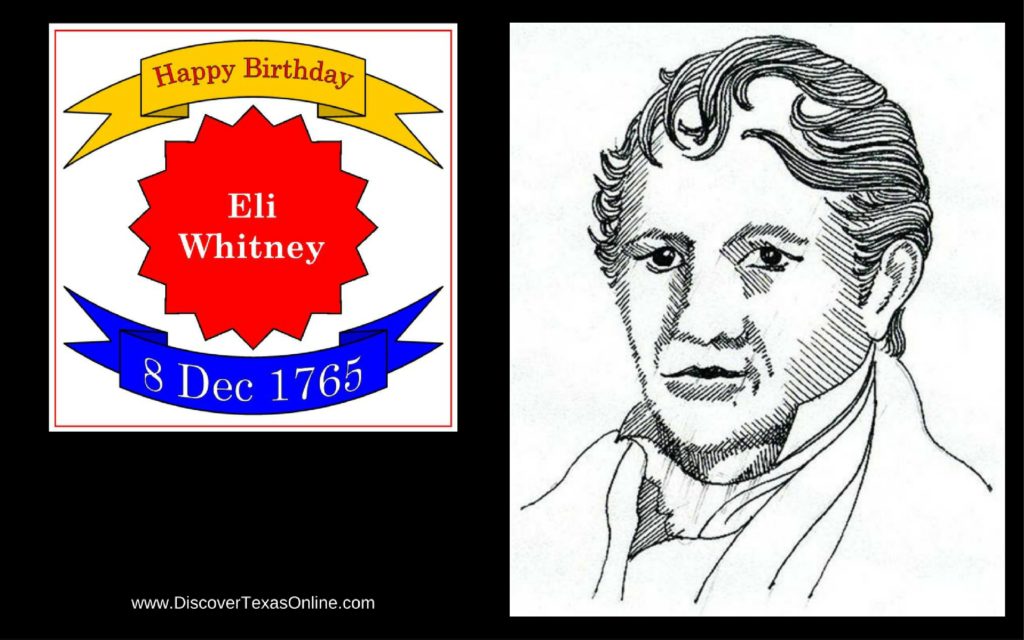 I must tell you right up front that Eli Whitney was not born in Texas.
I must tell you right up front that Eli Whitney was not born in Texas.
He did not die in Texas.
I’m fairly certain he never even set FOOT in Texas.
So why am I including him in our Texan Birthdays celebration?
Because Eli Whitney invented the cotton gin, and his invention came to Texas and changed our state’s history and economics in ways he never could have imagined. In fact, some historians believe that the invention of the cotton gin was a leading cause of the Civil War as well as the Texas Revolution.
Eli Whitney was born in Massachusetts and lived almost all of his life in the North, but on a trip to Georgia he visited a friend’s plantation and watched as slaves harvested cotton and did the tedious labor of removing the seeds. He reasoned that if he could invent an machine that could comb out the seeds, then one man with a gin (short for ‘engine’) could do the work of many slaves. People would pay him to process their cotton, and he would make his fortune.
That’s not how it worked out, though. Whitney patented his gin in 1794, but when people saw what a simple machine it was they saw no sense in paying him when they could make gins for themselves. Some even became competitors, building gins illegally and selling them at bargain prices. Whitney had to fight to defend his patent, but his rights weren’t validated until 1807. In the meantime, cheap cotton gins flooded the Southern market. Slavery had been dying out because it was not profitable to grow and process cotton, but now plantation owners bought more and more slaves to pick more cotton and run the new gins. Cotton made the economic difference between poverty and plenty for many in the South, and the success of cotton–and therefore the success of the South–was tied to the continuance of slavery.
When some of these families began to move to Texas in the 1820s and 1830s, they took their slaves with them so that they could grow cotton there, too. Slavery was illegal in Mexico, but special concessions were made for Texas. When Santa Anna proclaimed himself dictator and tossed out the Constitution of 1824, he also shut down Anglo immigration, raised taxes, tried to disarm the citizens, and tried to prohibit slavery. None of these enforced changes set well with Texans, and the rumble of rebellion began.
For these reasons, I am declaring Eli Whitney an important figure in the history of Texas–just for today.



